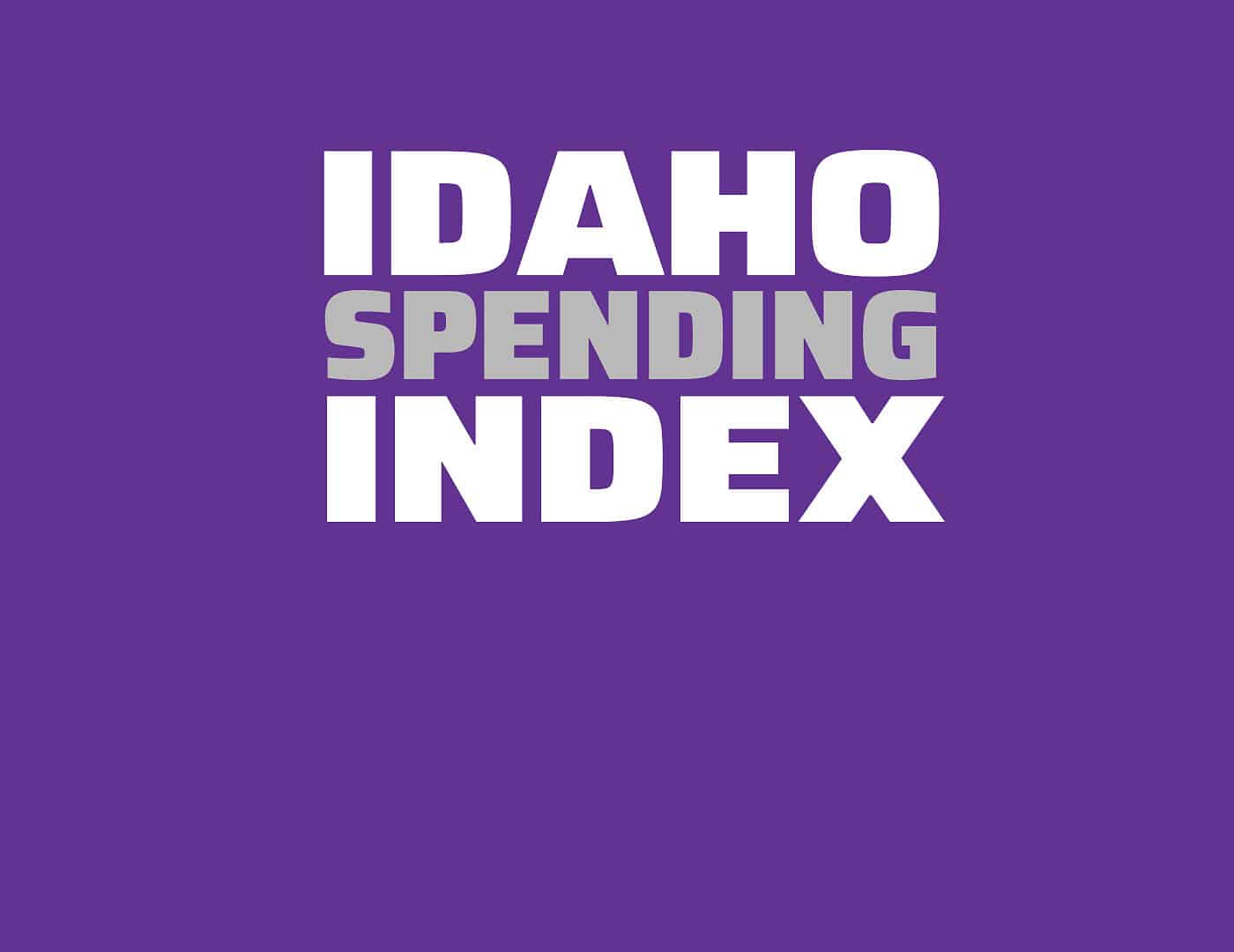


The Idaho Spending Index serves to provide a fiscally conservative perspective on state budgeting while providing an unbiased measurement of how Idaho lawmakers apply these values to their voting behavior on appropriations bills. Each bill is analyzed within the context of the metrics below. They receive one (+1) point for each metric that is satisfied by freedom-focused policymaking and lose one (-1) point for each instance in which the inverse is true. The sum of these points composes the score for the bill.
Analyst: Niklas Kleinworth
Rating: -3
Bill Description: Senate Bill 1183 appropriates $165,914,000 and 379.00 full-time positions to the Department of Environmental Quality for fiscal year 2024.
Does this budget incur any wasteful spending among discretionary funds, including new line items? Conversely, does this budget contain any provisions that serve to reduce spending where possible (i.e., base reductions, debt reconciliation, etc.)?
Senate Bill 1183 provides $191,900 for a pay rate increase to engineers on staff at the Department of Environmental Quality. When combined with the statewide change in employee compensation, this constitutes a mean raise of 9.2% for all engineers on staff. This large increase circumvents the purpose of the statewide change in employee compensation because those were the funds appropriated for the purpose of recruitment and retention based on merit.
The $1.20 statewide CEC would provide a roughly 3.4% average agency-wide increase in employee compensation. Providing an additional 5.8% increase in pay would be a significant jump compared to what is being appropriated to other state agencies.
(-1)
Is the maintenance budget inappropriate for the needs of the state, the size of the agency, or the inflationary environment of the economy? Conversely, is the maintenance budget appropriate given the needs of the state and economic pressures?
This legislation sets the maintenance budget for the Department of Environmental Quality at $146,395,500, growing from the base by 126% in the last three years. This rate appears to be far above what would be prescribed by inflationary pressures and growth. However, this is largely due to the injection of nearly $74 million in ongoing pandemic relief funds from the American Rescue Plan Act. These funds are built into the base and are set to expire in 2026. After accounting for these funds, the real growth within the agency is 12.3%, which is approximately equal to the rate of inflation over the same period.
(0)
Does this budget perpetuate or expand state dependence on federal dollars, thereby violating principles of federalism? Conversely, does this budget actively reduce the amount of federal dollars used to balance this budget?
Senate Bill 1183 appropriates $121,119,300 in federal funding to the Department of Environmental Quality. This constitutes 73% of the agency’s total budget. As noted above, there is $74 million in funding from APRA to cover additional water projects throughout the state, inflating the size of the agency’s base budget. Additionally, this budget also seeks to grow dependence on federal funding by adding $12.6 million from the Infrastructure Investment and Jobs Act for wastewater and drinking water projects.
ARPA and the IIJA were largely partisan measures from Washington, DC, because they represented gross federal overreach and a massive surge in the national debt. These concerns were compounded by issues of state sovereignty and the fact that the federal government is using pandemic relief funding for projects that have nothing to do with the pandemic, unnecessarily saddling our grandchildren with debt.
(-1)
Does the budget grow government through the addition of new permanent FTPs or through funding unlegislated efforts to create new or expanded entitlement programs? Conversely, does this budget reduce the size of government staff and programs except where compelled by new legislation?
The Department of Environmental Quality seeks to hire for four new positions, costing a total of $393,000. Two of these positions include a Permit Writer and a Data Analyst for the Idaho Pollutant Discharge Elimination Program (IPDES) project to administer the federal Clean Water Act permitting process. The department will also hire a Wastewater Reuse Analyst and an Air Quality Compliance Officer. The department intends to repurpose existing full-time positions within the agency to avoid raising its FTP cap. This is a good use of existing resources to prevent growing the size of government.
(0)
Does this budget contain hidden fund transfers or supplemental expenditures that work to enact new policy or are not valid emergency expenditures? Conversely, are fund transfers only made to stabilization funds or are supplemental requests only made in the interest of resolving valid fiscal emergencies?
Senate Bill 1183 contains three supplementals totaling $3,750,900. The first supplemental provides $3 million from the General Fund for a new Electronic Data Management System. This supplemental request hardly seems to constitute a fiscal emergency since the funds are expected to last several years for the full implementation of the new program. At the very least, the full amount may not need to be appropriated during the 2023 fiscal year.
The Department is also requesting another $555,000 in funding for maintenance at the Kellogg Central Treatment Plant. The original appropriation for the project in 2021 was $500,000, but the department notes that inflationary increases in fuel, supplies, and shipping justify this increase. However, this is an ongoing request that more than doubled the budget. This far exceeds the rate of inflation, calling into question the prudency of the value of this appropriation.
Finally, Senate Bill 1183 also appropriates $195,900 in funding from ARPA to replace air quality measurement systems in Pocatello. This request did not come from the agency but was initiated by the governor, indicating that it is not an emergency need in the eyes of the agency. Therefore, this should not be a supplemental appropriation.
(-1)


